ST Car of the Year 2023: Five electric and hybrid finalists vying for top honours
Sign up now: Get ST's newsletters delivered to your inbox
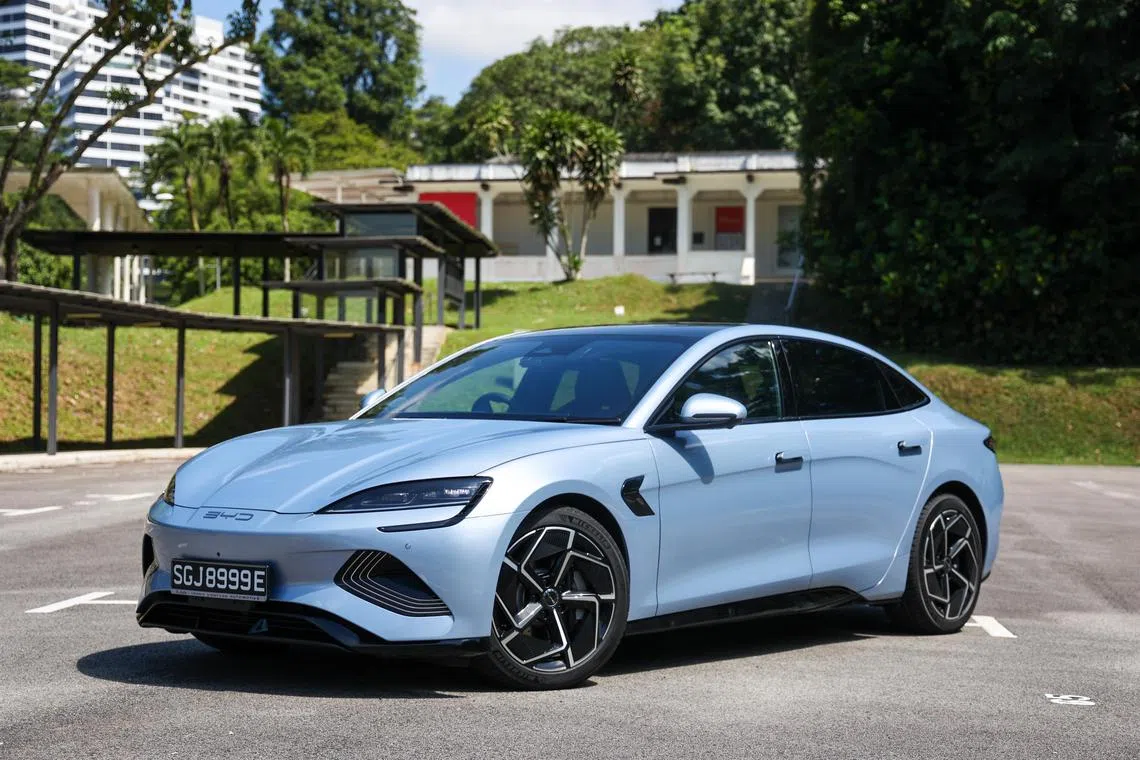
BYD Seal: The quickest contender this year.
PHOTO: LIANHE ZAOBAO
Follow topic:
SINGAPORE – The elimination process has begun for The Straits Times Car of the Year and five contenders out of nine shortlisted cars
They are the BYD Seal, Hyundai Ioniq 5, Lotus Eletre, MG 4
The Seal, Eletre and MG are made in China, reflecting the country’s growing prominence in the electric vehicle (EV) industry. While the Hyundai is a South Korean brand, the Ioniq 5 assessed here is assembled in Singapore.
Almost half of the new models launched in Singapore in 2023 are electric, while EVs make up roughly one in five new cars registered in the first nine months of the year.
There are some reasons for the relatively low take-up.
For one thing, most of the available models qualify only for the costlier Category B certificate of entitlement (COE), making them relatively pricey to the masses. Many of them cost more than $200,000 before the recent correction in COE prices.
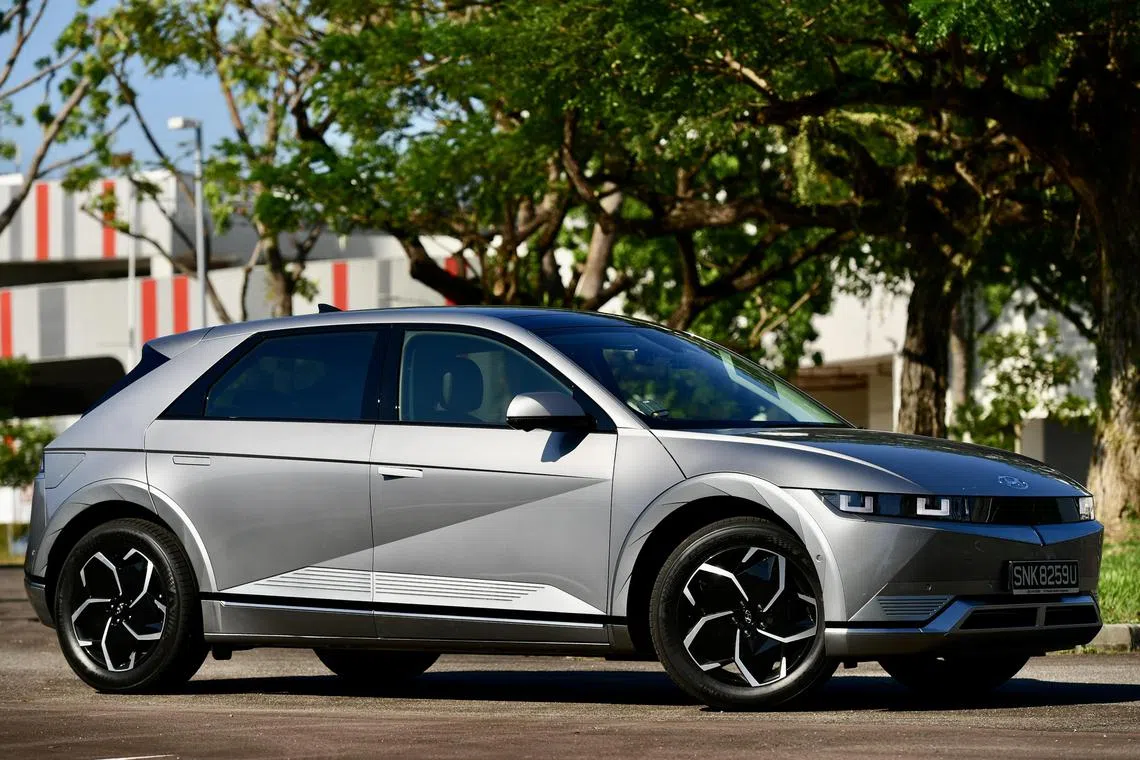
Hyundai Ioniq 5: The first and only Singapore-assembled contender.
PHOTO: ST FILE
Second, the EV charging network is still in its infancy.
As at September, there were more than 4,900 EV charging points here, with only around 2,500 of them accessible to the public. While this number has been growing in recent years, it still pales in comparison with the 15,378 EVs (including plug-in hybrids) on the road as at end-September.
As many as one-third of these EVs are either commercial vehicles or cars providing point-to-point transport services. These clock two to four times the distances of the average family car and need to visit chargers a lot more frequently.
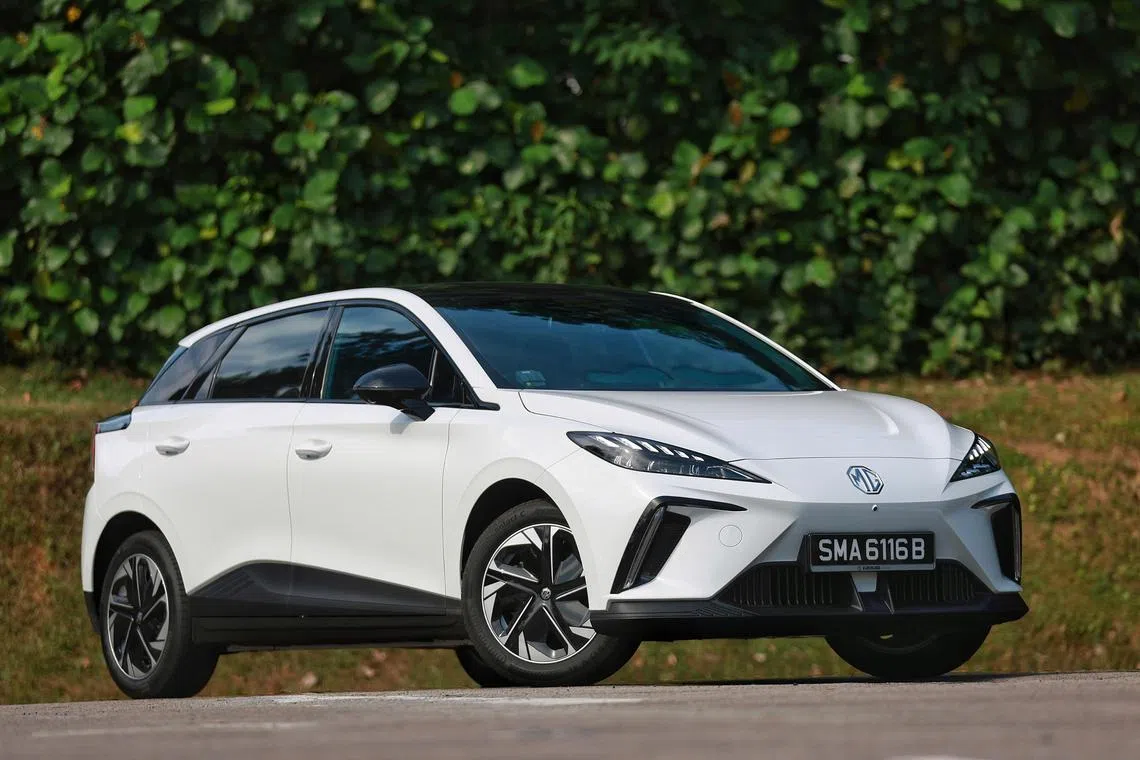
MG 4: Closest to a battery-powered hot hatch today.
PHOTO: ST FILE
Singapore aims to have 60,000 EV chargers by 2030, which is less than seven years away.
Seeing that the bulk of the current chargers were built in the last three years, it would mean that the pace of construction would have to be at least three times faster to meet the target.
For those with access to private chargers, an EV is an attractive option.
In a built-up, compact city such as Singapore, an EV outperforms the combustion-engine car by leaps and bounds. Abundant torque which is available instantaneously makes an EV an absolute joy at the wheel.
Which explains why eight out of nine cars shortlisted for ST Car of the Year 2023 are either partly or fully electrified.
The partly electrified contenders – the Toyota Vellfire
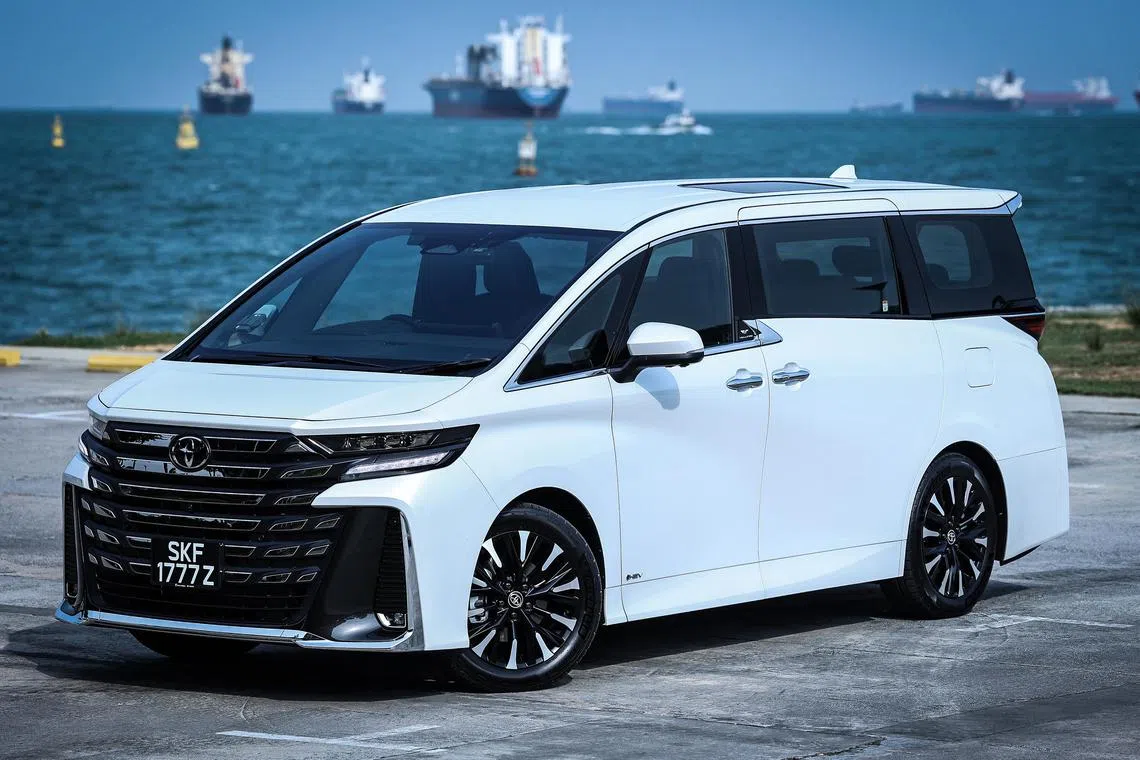
Toyota Vellfire: Spacious, luxury multi-seater which sips fuel.
PHOTO: ST FILE
Among the fully electric contenders, the BYD Seal
The Lotus Eletre
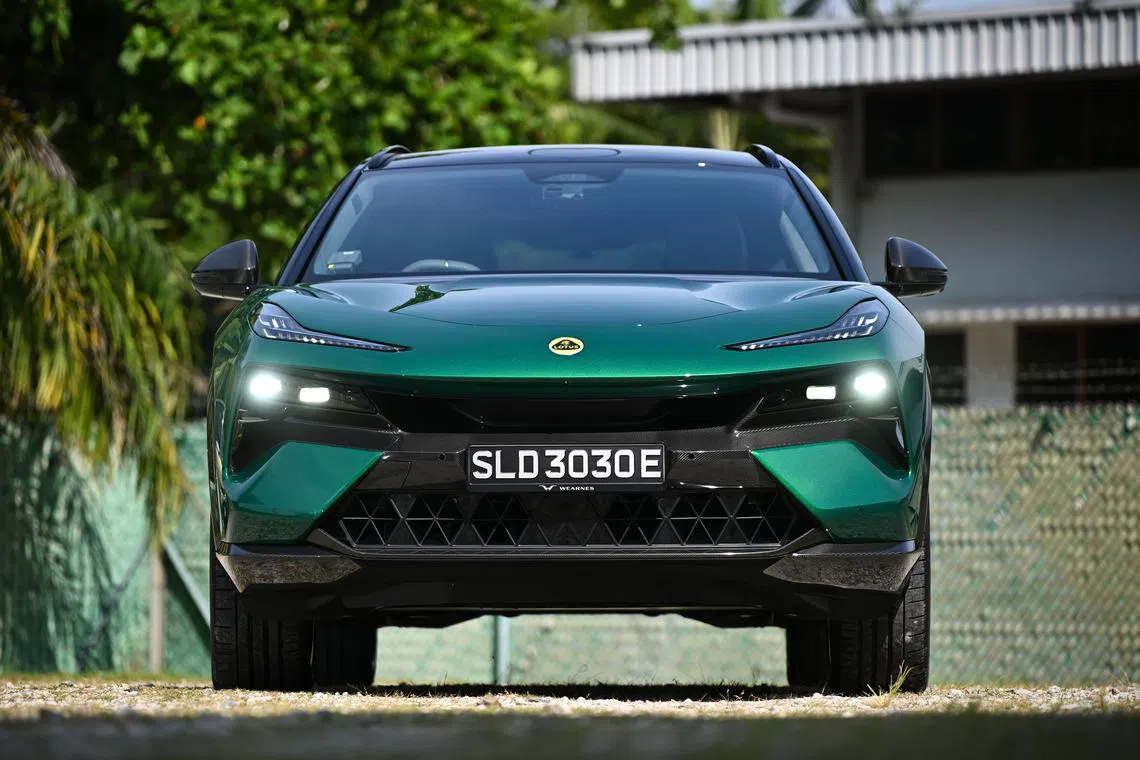
Lotus Eletre: British, China-made and very fast.
PHOTO: ST FILE
So, unless you are in an endurance or cross-country race, electric cars are more than capable of shaming their combustion-engine equivalents.
A car, however, is more than speed and acceleration. It is about a host of other qualities, the most crucial of which are taken into consideration in the ST Car of the Year deliberations. The nine evaluation criteria are: performance, handling, ride quality, build quality, practicality, efficiency, styling, value for money and X-factor.
The award, in its 21st year now, is the longest-running of its kind.
The ST Car of the Year will be announced on Dec 22.
Follow Christopher Tan on Instagram
@chris.motoring


